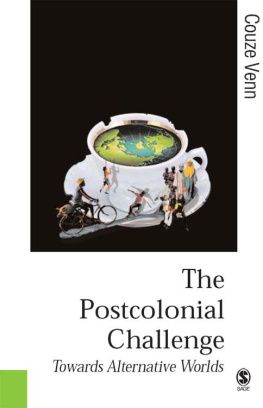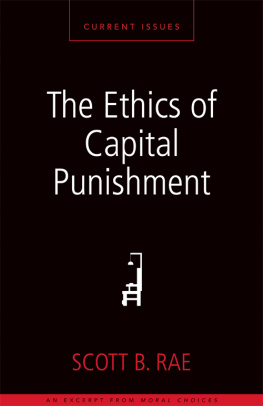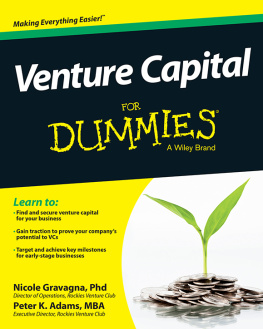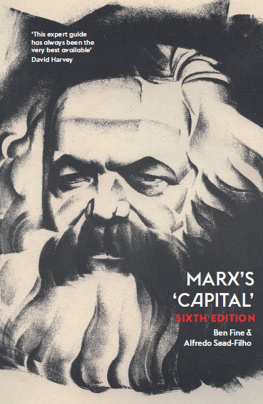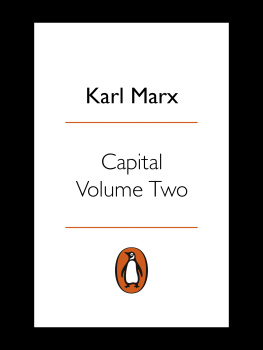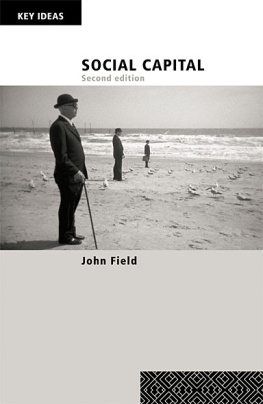After Capital
After Capital
Theory, Culture & Society
SAGE Publications Ltd
1 Olivers Yard
55 City Road
London EC1Y 1SP
SAGE Publications Inc.
2455 Teller Road
Thousand Oaks, California 91320
SAGE Publications India Pvt Ltd
B 1/I 1 Mohan Cooperative Industrial Area
Mathura Road
New Delhi 110 044
SAGE Publications Asia-Pacific Pte Ltd
3 Church Street
#10-04 Samsung Hub
Singapore 049483
Couze Venn 2018
First published 2018
Apart from any fair dealing for the purposes of research or private study, or criticism or review, as permitted under the Copyright, Designs and Patents Act, 1988, this publication may be reproduced, stored or transmitted in any form, or by any means, only with the prior permission in writing of the publishers, or in the case of reprographic reproduction, in accordance with the terms of licences issued by the Copyright Licensing Agency. Enquiries concerning reproduction outside those terms should be sent to the publishers.
Library of Congress Control Number: 2018932208
British Library Cataloguing in Publication data
A catalogue record for this book is available from the British Library
ISBN 978-1-5264-5012-8
ISBN 978-1-5264-5013-5 (pbk)
Editor: Natalie Aguilera
Assistant editor: Delayna Spencer
Editorial assistant: Eve Williams
Production editor: Katherine Haw
Copyeditor: Chris Bitten
Proofreader: Rebecca Storr
Indexer: Couze Venn
Marketing manager: Susheel Gokarakonda
Cover design: Wendy Scott
Typeset by: C&M Digitals (P) Ltd, Chennai, India
Printed in the UK
This extraordinary work synthesises, extends and originates a vast range of scholarship and critical thought. In doing so, it offers the most concise yet most comprehensive account of the crisis of our times, and of the very nature of capitalism as such, to have been produced for many years. Couze Venn is one of the great unsung intellectual heroes of our age; how many other thinkers are able to synthesise post-structuralist philosophy and postcolonial theory with Marxist political economy and critical ecology, without a trace of superficiality in their approach to any of these sources? How many would even dare to try? This is an invaluable book for anyone who wants to think politically about the state of the world today, inside or outside the academy, in any discipline.
Jeremy Gilbert, Professor of Cultural and Political Theory, University of East London
After Capital takes the risky path that our bleak circumstances demand. This thoughtful and learned intervention boldly spells out protocols for a new way of living. Moving between critique and urgent, unsentimental speculation, Couze Venn identifies the novel habits required to sustain life beyond the war, waste and squalor of contemporary capitalism.
Paul Gilroy, Professor of American and English Literature, Kings College, University of London
A tour de force. It is difficult to overstate the importance of this book not only for the present but for many generations to come.
Valerie Walkerdine, Professor, Cardiff University
I could not recommend a better book to those interested not only in the interdependence of the multiple crises (environmental, economic and political) that we are currently entangled in, but also in alternative visions for the future. After Capital is outstanding scholarship that daringly and passionately articulates new conceptual frameworks that makes clear the potential of a post-capitalist and post-anthropocentric cosmopolitics of the commons to make life after capital something to look forward to.
Dr Tiziana Terranova, University of Naples, LOrientale
With typical depth and thoughtfulness, Couze Venn explores and untangles the intricately woven and mammoth issues that we face today. Erudite and scholarly, these pages are a revelation and guide in our complex and uncertain times.
Dr Dave Beer, Reader, York University
The book is dedicated to my wife Francesca for the years of constant and unfailing emotional sustenance, love and intellectual companionship. The loving support of our close family, Scarlett Thomas, Rod Edmond, Sam Ashurst, Hari Ashurst-Venn and Nia Ashurst-Venn has sustained me through the long process of writing; they have been a constant source of encouragement, comfort and fun. It is dedicated also to Francescas and my granddaughter Ivy, in the hope that the world she inherits from us is a liveable and happy one, to be shared amongst all equally as the greatest gift.
About the Author
Couze Vennis Emeritus Professor in the Media and Communications Department, Goldsmiths, University of London, and Associate Research Fellow at the Johannesburg University. He was a founder member of the
Ideology & Consciousness Collective in 1976. He is a co-author of
Changing the Subject: Psychology, Social Regulation and Subjectivity (Methuen, 1984 and Routledge, 1998), author of
Occidentalism. Modernity and Subjectivity (Sage, 2000),
The Postcolonial Challenge: Towards Alternative Worlds (Sage, 2006), co-author of
Inequality, Poverty, Education (Palgrave, 2014). He is the Managing Editor and Reviews Editor of
Theory, Culture & Society, Reviews Editor of
Body & Society. His many papers have appeared in
Ideology & Consciousness, Theory, Culture & Society, Body & Society, Subjectivity, New Formations, Critical Arts, Parallax, Social Identities, Political Geography, PsychCritique. He has edited or co-edited special issues and sections on Michel Foucault (with Tiziana Terranova), Affect (with Lisa Blackman), Problematizing Global Knowledge (with Mike Featherstone et al.), Cosmopolis (with Mike Featherstone et al.), Rethinking Race. His research interests include decolonial theory, cultural theory, contemporary philosophy, science and technology studies, the critique of capitalism.
Acknowledgements
This book has taken much longer to complete than I had anticipated. Along the way many friends and colleagues have offered comments and generous encouragements without which this book would never have seen the light of day. Several aspects of the book have been developed over the years, through talks and seminars to which colleagues had kindly invited me, and in a number of journal articles. Key arguments were tried out at a plenary lecture for the Radical Foucault Conference in 2011 organised by my friend Jeremy Gilbert. Jeremy has also read early drafts of chapters and provided valuable comments and advice when I needed reassurance about the overall project. The problem of debt in todays financial capitalism was presented in 2012 at the TCS seminar on property at the University of Naples lOrientale, organised by colleagues there, principally Tiziana Terranova and Iain Chambers. The analysis in draws from my paper in







